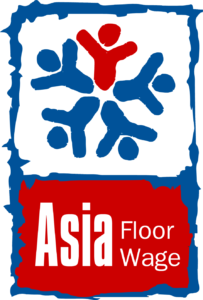Dindigul Agreement Year 2 Progress Report: 76% of Grievances Resolved Within Two Weeks
In its second year, the Dindigul Agreement has demonstrated significant progress in eliminating gender-based violence and harassment (GBVH) at Eastman Exports’ Natchi factory. Of the 30 GBVH-related issues (out of 242 total grievances raised), 76% were resolved within two weeks, reflecting the strong collaboration between workers, unions, and management. The Year 2 report highlights the vital role of Freedom of Association (FOA) in improving working conditions and addressing grievances.
Read the full report here: English
The second-year progress report on the Dindigul Agreement, commissioned by the Oversight Committee and led by Cornell University’s Global Labor Institute, outlines significant progress in eliminating gender-based violence and harassment (GBVH) at the Natchi Apparel Factory. Convention 190king agreement, which incorporates principles from International Labour Organization (ILO) Convention 190 demonstrates the effectiveness of transnational collaboration in addressing workplace violence.
The second-year progress report on the Dindigul Agreement, commissioned by the Oversight Committee and led by Cornell University’s Global Labor Institute, outlines significant progress in eliminating gender-based violence and harassment (GBVH) at the Natchi Apparel Factory. Convention 190king agreement, which incorporates principles from International Labour Organization (ILO) Convention 190 demonstrates the effectiveness of transnational collaboration in addressing workplace violence.
The report finds overwhelming evidence that the Dindigul Agreement is meeting the goals for which it was created, underlining the power of collective bargaining and Freedom of Association (FOA) in securing worker rights. The multi-tier grievance mechanism, including prevention and monitoring on production lines by worker Shop Floor Monitors, designed to address both GBVH and non-GBVH grievances, is proving to be highly effective.
Moreover, the agreement goes beyond the factory floors, with the grievance redressal system extending to cover transportation and worker hostels. This has led to enhanced trust between the women workers and management, building on the solidarity fostered by the agreement.
Standout Statistics:
- 242 grievances raised in 2023, with 30 concerning GBVH.
- 76% of GBVH-related grievances were resolved within two weeks, showcasing the speed and effectiveness of the grievance mechanism.
- 105 meetings between the Tamil Nadu Textile and Common Labour Union (TTCU) and Eastman management in 2023.
- Over 100 women promoted to production line leaders, creating safer environments and more opportunities for career advancement.
The report further emphasizes the role of Freedom of Association (FOA) in preventing and remediating workplace violence. The strength of FOA in eliminating and preventing GBVH cannot be understated, with union-management meetings acting as the main channel for resolving disputes swiftly and fairly. This system has become a cornerstone of the Dindigul Agreement’s success.
Impactful Outcomes:
The presence of union leaders on the factory premises has instilled confidence among workers to report grievances without fear of retaliation. The frequent and continuous engagement of the TTCU with workers, both in the factory and in their villages, has been instrumental in eliminating their fear of reporting. This constant support has enabled workers to not only voice their grievances but to trust that their concerns will be addressed with fairness.
As one worker put it, “Before the training when my supervisor asked me to do extra tasks and I refused, he used to scold me harshly or give me additional work. I used to think that he behaved like this because I made a mistake at work. In the training, I learned that this was a form of harassment and abuse of power. Now, if he retaliates against me without cause, I boldly confront him immediately.”
Additionally, the report highlights the broader social impacts of the agreement. The agreement’s influence extends beyond the workplace, with workers reporting positive spillover effects into their homes and communities. This is particularly evident in the women-led union initiatives, which has enabled women workers to take lessons from the factory into their personal lives, contributing to a cultural shift in attitudes towards GBVH.
The progress made under the Dindigul Agreement marks a critical step towards securing better labor conditions and eliminating workplace violence. However, the sustainability of these gains requires continued support from brands and stakeholders. The report makes a strong case for more brands to commit to sourcing from these factories to ensure the agreement’s long-term viability.
–
Signatories:
- Tamil Nadu Textile and Common Labour Union (TTCU)
- Asia Floor Wage Alliance (AFWA)
- Global Labor Justice (GLJ)
- H&M Group
- Gap Inc.
- PVH Corp.
- Eastman Exports
Read the full report here: English
Asia Floor Wage Alliance (AFWA) is an Asian labor-led global labor and social alliance across garment producing countries (such as Bangladesh, Cambodia, India, Indonesia, Pakistan, Sri Lanka) and consumer regions (USA and Europe) for addressing poverty level wages, gender-based violence, and freedom of association in global garment production networks.
Global Labor Justice (GLJ) is a non- governmental organization that works transnationally to advance policies and laws that protect decent work; to strengthen freedom of association and workers’ ability to advocate for their rights; and to hold corporations accountable for labor rights violations in their supply chains.
The Tamil Nadu Textile and Common Labour Union (TTCU) is a women-led trade union primarily representing Dalit women in Tamil Nadu, India. With over 11,000 female textile workers as members, TTCU is dedicated to advocating for workers’ rights, particularly focusing on the garment and textile sectors. As a majority Dalit women-led union, TTCU plays a vital role in addressing the unique challenges faced by marginalized female workers, striving for safe, equitable, and fair labor conditions across the industry.
The Global Labor Institute (GLI) at Cornell’s ILR School focuses on research and data-driven conversations to improve labor standards in global supply chains. It aims to enhance labor rights and improve working conditions by analyzing data and conducting field research. The institute works with unions, brands, suppliers, and governments, fostering evidence-based decision-making.
